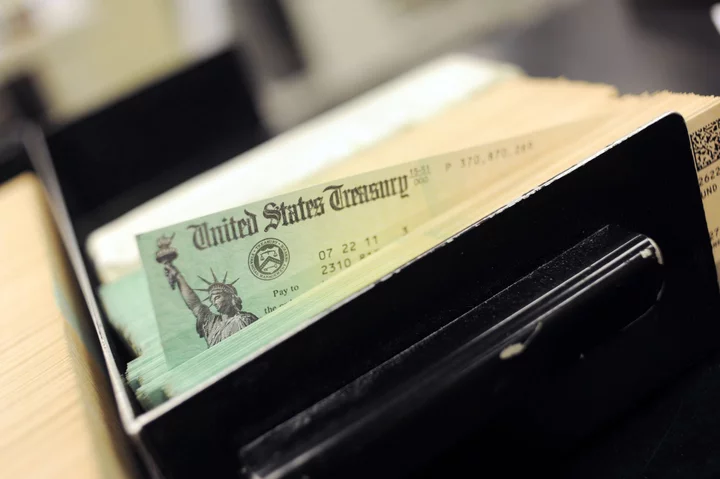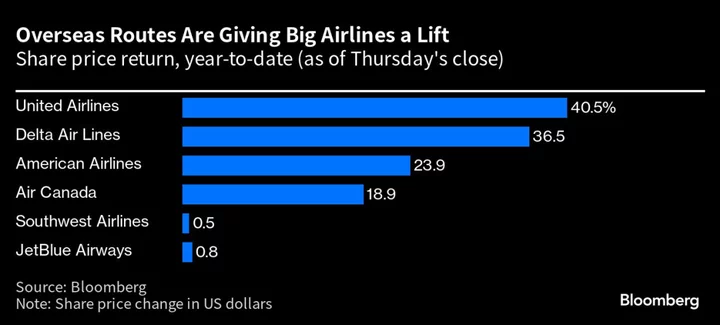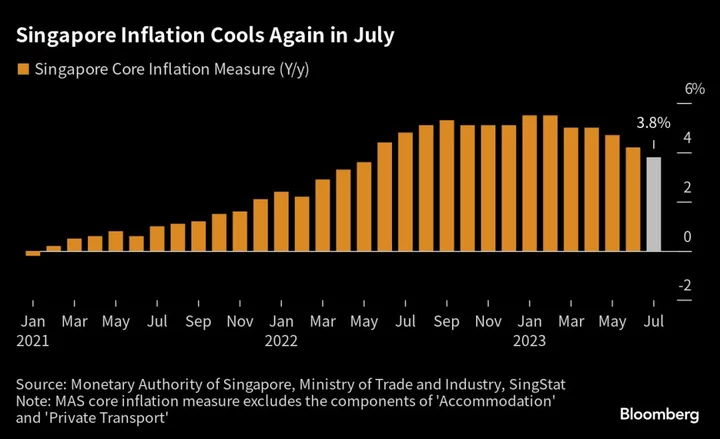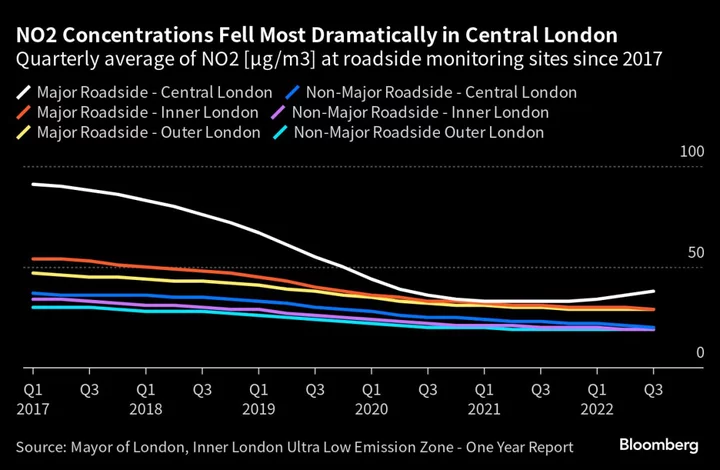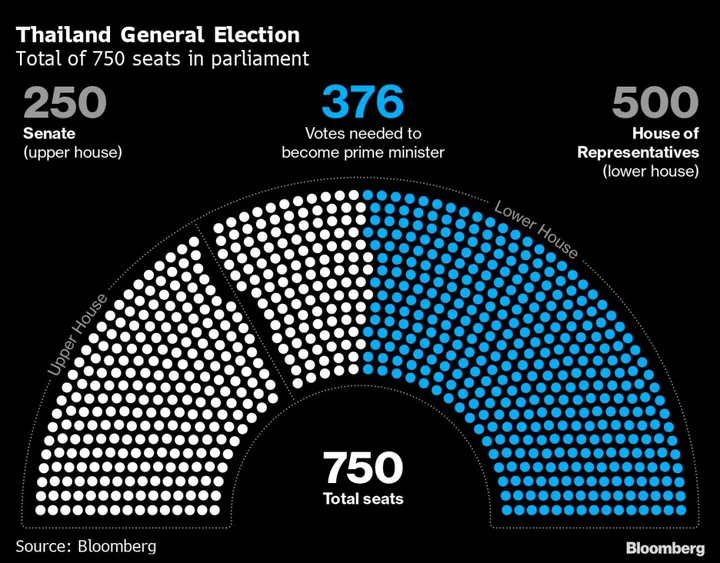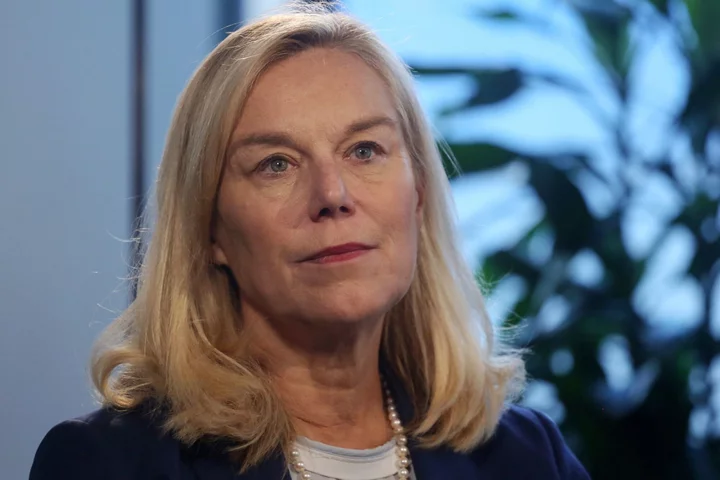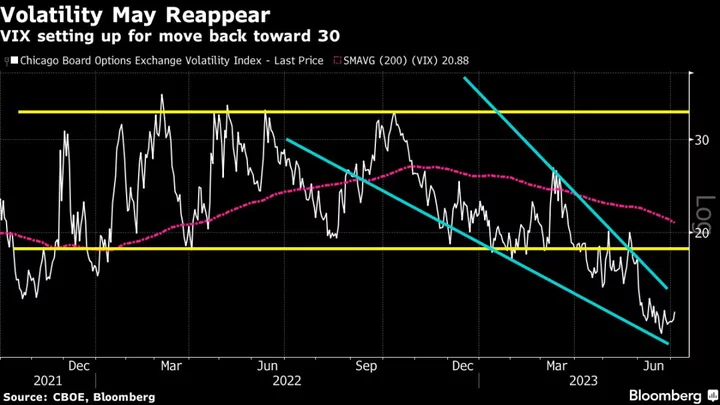The amount of money the US government had to pay its bills edged up marginally from a half-decade low just before President Joe Biden signed legislation that suspended the statutory borrowing limit until 2025.
The Treasury’s cash balance rose to $23.4 billion on Friday, according to data published Monday. That was up from $22.9 billion on June 1, which was on a par with a level last reached in October 2015. The Treasury’s bank account had been under downward pressure recently because of measures being taken to avoid breaching the $31.4 trillion debt cap.
The bill Biden signed Saturday suspended the debt limit until Jan. 1, 2025, allowing the Treasury to rebuild its cash to more normal levels. Early last month — before a lot of the political wrangling that saw a deal struck to avoid default with just days to spare — the Treasury department had penciled in a $550 billion cash-balance level for the end of June. A widening fiscal deficit also puts pressure on the Treasury to step up borrowing.
Plans to replenish the Treasury’s cash balance by ramping up its cache of bills are already afoot. This week’s bill auctions will increase the outstanding supply by about $90 billion.
The new debt-cap legislation has suspended the debt ceiling until Jan. 1, 2025, but the law now includes language that will allow the Treasury to keep a more normal cash balance in the run up to the next reinstatement. Wrightson ICAP expects the department will target a cash buffer of $700 billion or more at the end of 2024.

